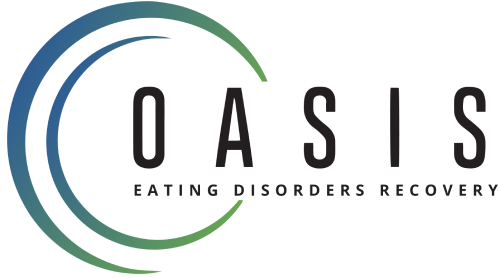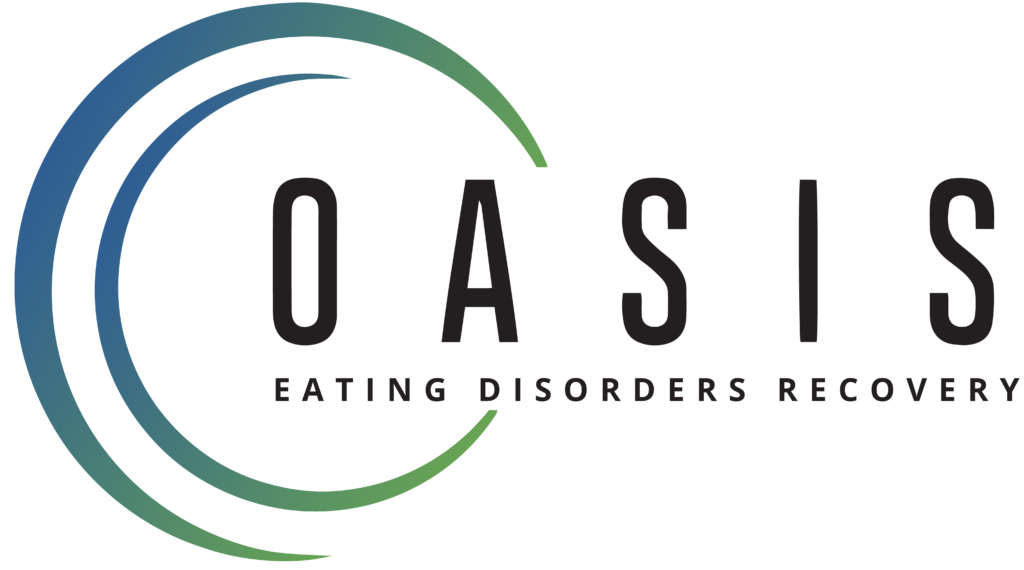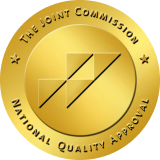Choose Facility
ARFID Recovery: Symptoms, Causes, And Treatments
Avoidant/restrictive food intake disorder (ARFID) is a newly recognized eating disorder that is characterized by a persistent failure to meet appropriate nutritional needs due to limited intake of foods or food groups. ARFID can occur at any age, but it is most commonly diagnosed in children and adolescents.
What are the symptoms of ARFID?
The symptoms of ARFID can vary from person to person, but they may include:
- Avoidance of certain foods or food groups
- Restriction of food intake
- Inadequate weight gain or weight loss
- Nutritional deficiencies
- Social isolation
- Anxiety or distress related to eating
The impact of avoiding food groups and restricting food intake
The impact of people with ARFID avoiding certain food or food groups can be significant. It can lead to a number of health problems, including:
- Malnutrition: If people with ARFID do not eat enough calories or nutrients, they can become malnourished. This can lead to a number of health problems, such as anemia, osteoporosis, and heart disease.
- Growth and development problems: In children, ARFID can lead to growth and development problems. This is because children need a variety of nutrients to grow and develop properly. If they do not eat enough of these nutrients, they may not reach their full height or weight.
- Social isolation: ARFID can lead to social isolation. This is because people with ARFID may avoid social gatherings where food is served, or they may eat alone. This can make it difficult to make friends and maintain relationships.
- Anxiety and depression: ARFID can also lead to anxiety and depression. This is because people with ARFID may feel anxious about eating certain foods, or they may feel guilty about not eating enough. Anxiety and depression can have a number of negative consequences for a person’s life, including interfering with their work, school, and relationships.
ARFID -related weight gain and weight loss
People with Avoidant/Restrictive Food Intake Disorder (ARFID) often have inadequate weight gain or weight loss. This is because they avoid certain foods or food groups, which can lead to a lack of calories and nutrients. In children, ARFID can lead to growth and development problems. In adults, it can lead to health problems, such as anemia, osteoporosis, and heart disease.
Nutritional deficiencies caused by Avoidant/Restrictive Food Intake Disorder
People with Avoidant/Restrictive Food Intake Disorder (ARFID) may have nutritional deficiencies due to their limited food intake. The specific deficiencies that affect someone with ARFID will vary depending on the foods they avoid. However, some common deficiencies include:
- Iron deficiency anemia: Iron is essential for red blood cell production. A lack of iron can lead to anemia, which can cause fatigue, shortness of breath, and pale skin.
- Vitamin B12 deficiency: Vitamin B12 is essential for nerve function and red blood cell production. A lack of vitamin B12 can lead to fatigue, numbness and tingling in the hands and feet, and problems with memory and concentration.
- Folate deficiency: Folate is essential for cell growth and development. A lack of folate can lead to anemia, birth defects, and gastrointestinal problems.
- Calcium deficiency: Calcium is essential for bone health. A lack of calcium can lead to osteoporosis, a condition in which the bones become weak and brittle.
- Zinc deficiency: Zinc is essential for immune function, wound healing, and cell growth. A lack of zinc can lead to an impaired immune function, delayed wound healing, and skin problems.
Social isolation for people with ARFID
People with ARFID may engage in social isolation in a number of ways. Some common ways include:
- Avoiding social gatherings where food is served. This could include birthday parties, weddings, potlucks, and other events where food is a central part of the occasion.
- Eating alone. This could mean eating in a separate room from others or eating in a different location altogether.
- Bringing their own food to social gatherings. This can be a way to control what they eat and avoid feeling anxious or uncomfortable around others.
- Making excuses to avoid social gatherings. This could include saying they are sick, have a work commitment, or simply don’t feel like going.
Social isolation can have a number of negative consequences for people with ARFID. It can lead to feelings of loneliness, depression, and anxiety. It can also make it difficult to maintain relationships with friends and family.
Eating-related anxiety and stress
There are a number of reasons why people with ARFID experience eating-related stress and anxiety. People with ARFID may have a fear of choking on food, vomiting, or gaining weight which can be triggered by a past negative experience or family history. Individuals can also experience stress while eating due to a sensory aversion to the texture, smell, taste, or appearance of food. Often, people with obsessive-compulsive disorder (OCD) have rituals or routines related to food that they feel they need to follow in order to prevent something bad from happening.
What causes ARFID?
The exact cause of ARFID is unknown, but it is thought to be caused by a combination of factors, including:
- Genetics: Studies suggest there may be genes that increase the risk of developing ARFID, particularly genes related to neurodevelopment, metabolism, and anxiety.
- Psychological factors, such as anxiety or fear of eating
- Sensory issues, such as dislike of the taste, texture, or smell of certain foods
- Medical conditions, such as gastroesophageal reflux disease (GERD) or celiac disease
What do people with ARFID usually eat?
People with Avoidant/Restrictive Food Intake Disorder (ARFID) usually eat a limited variety of foods. They may eat only a few foods that they consider safe, and they may avoid other foods for a variety of reasons. These reasons can include:
- The food’s appearance, smell, or texture
- The food’s taste
- The food’s brand or presentation
- A past negative experience with the food
- A fear of adverse consequences, such as choking or vomiting
- A lack of interest in food
The foods that people with ARFID eat can vary from person to person. Some people may only eat a few different types of fruits, vegetables, or grains. Others may only eat certain types of meat, dairy, or processed foods. It is not uncommon for people with ARFID to eat the same foods every day.
ARFID can have a serious impact on a person’s health. If people with ARFID do not eat enough calories or nutrients, they can become malnourished and develop health problems, such as anemia, osteoporosis, or heart disease. ARFID can also lead to social isolation and anxiety.
What foods are safe for people with ARFID?
The foods that people with ARFID like can vary from person to person, but some common safe foods include:
- White bread
- Pizza
- French fries
- Sweets
- Chicken nuggets
- Plain noodles
- Crackers
- Cereal
- Grilled cheese sandwiches
- Mac and cheese
- Hot dogs
- Hamburgers
- Spaghetti
- Peanut butter and jelly sandwiches
- Toast
- Eggs
- Yogurt
- Milk
What treatments are available for ARFID?
Treatments for ARFID will vary depending on the severity of the disorder and the individual’s needs. However, some common treatment approaches include:
- Cognitive-behavioral therapy (CBT): CBT is a type of therapy that helps people identify and change negative thoughts and behaviors. CBT can be helpful for people with ARFID who are struggling with anxiety, fear, or avoidance of food.
- Exposure therapy: Exposure therapy is a type of therapy that gradually exposes people to the things they are afraid of. Exposure therapy can be helpful for people with ARFID who are avoiding certain foods.
- Family-based treatment (FBT): FBT is a type of therapy that involves the entire family in the treatment process. FBT can be helpful for children and adolescents with ARFID.
- Nutritional counseling: Nutritional counseling can help people with ARFID learn about healthy eating and how to make sure they are getting the nutrients they need.
Is it possible to recover from ARFID?
Recovery from ARFID is possible with the right treatment. With time and effort, people with ARFID can learn to eat a healthy and balanced diet and overcome their fear of food. The best recovery option for a person with ARFID will vary depending on the individual’s needs and preferences. It is important to work with a healthcare team of therapists, nutritionists, and counselors to develop a personalized recovery plan.
If you or a loved one are recovering from ARFID, remember these tips:
- Start slowly: Don’t try to change your eating habits too quickly. Start by adding one new food to your diet each week.
- Be patient: Recovery from ARFID takes time and patience. Don’t get discouraged if you don’t see results immediately.
- Reward yourself: When you reach a goal, reward yourself with something you enjoy. This will help you stay motivated.
- Don’t give up: Recovery from ARFID is possible. With hard work and dedication, you can overcome your food avoidance and live a healthy and fulfilling life.
Contact Oasis Eating Recovery for professional help with ARFID!
Oasis Eating Recovery offers a variety of programs to help people with eating disorders, including anorexia nervosa, bulimia nervosa, binge eating disorder, and avoidant/restrictive food intake disorder (ARFID). The clinic’s programs are designed to be comprehensive and individualized, and they offer a variety of treatment options, including:
- Partial Hospitalization Program: Our PHP program can be a helpful option for people with ARFID who need more support than outpatient therapy can provide. The program’s structured environment and intensive treatment can help people with ARFID gain weight, improve their eating habits, and develop coping mechanisms for managing their eating disorders.
- Intensive Outpatient Program: Our IOP program can be a helpful option for people with ARFID who need more support than outpatient therapy can provide. Our IOP program offers individualized meal plans, nutrition education groups, body image groups, cognitive behavioral therapy groups, dialectical behavioral therapy groups, art therapy, body positive movement groups, individual and family therapy crisis intervention, case management, and after-care planning
- Outpatient Psychiatry Program: Our outpatient psychiatry program provides medication management, psychiatric evaluation, medical expertise, and professional support for those with ARFID.
We’d love to help you or your loved one overcome ARFID through evidence-based treatment programs. Contact us today to start your journey to a better, more fulfilling life.
All Rights Reserved © by Oasis Eating Recovery Center | Website Sitemap | Privacy Policy | Billing Policy



